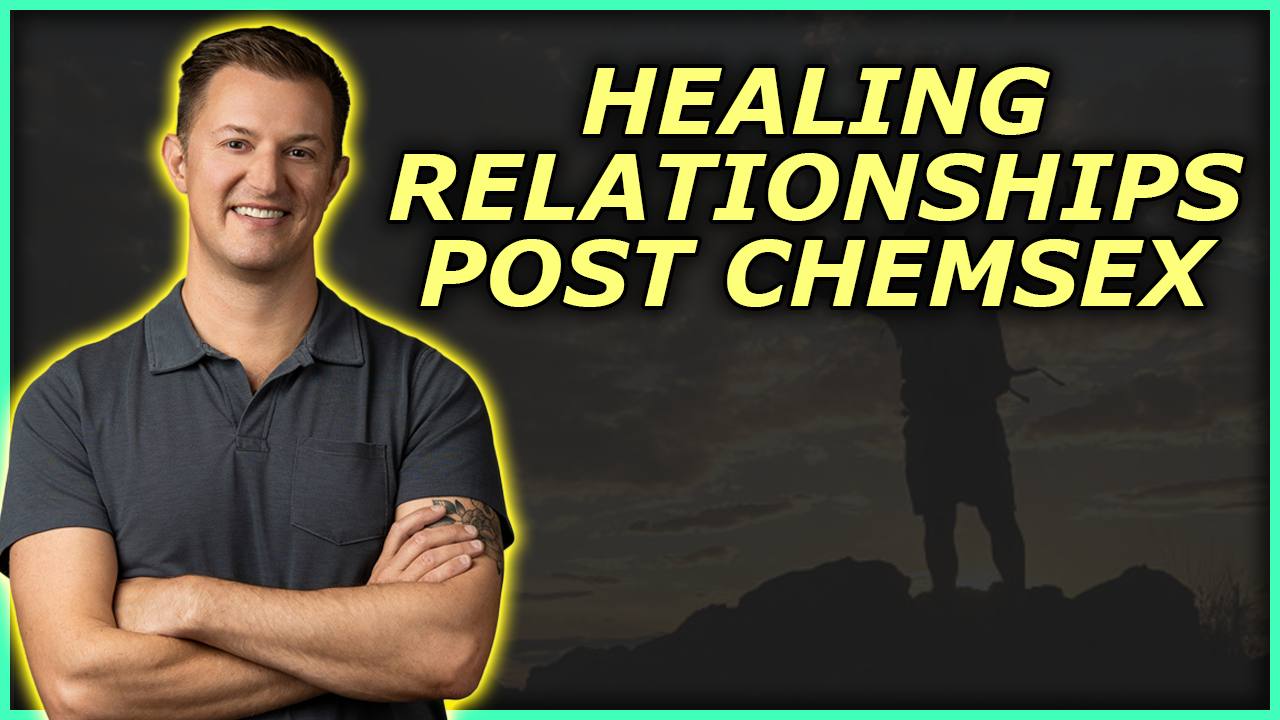Healing Sexual Shame

Shame. The most often discussed and most misunderstood word within the recovery space.
I'll admit that I am still wading my way through all of the complex conceptual layers.
One thing I do know: shame is at the core of any addictive pattern.
The more we can learn about our own shame, the more we heal. The more we heal, the stronger our recovery.
One nuance that is particularly gnarly is Sexual Shame. Just when we think we have a handle on shame, in comes the murky layers of sex's influence.
For that reason, I am so grateful to have people like Coach Kevin Martin who help guys like us understand and heal from deep-rooted sexual shame.
He is out on the front lines, equipping us with practical and impactful tools to become the best and highest expressions of ourselves.
This week's episode is a must-listen. Grab a notebook, pen, and put your phone on do not disturb.
Understanding Your Inner Voice
Sexual shame doesn't develop overnight.
It builds through years of messages we've absorbed about who we should be, what we should want, and how we should express ourselves.
For many of us, especially those who've used substances like crystal meth to cope, shame became the backdrop against which all our sexual experiences played out.
When Coach Kevin talks about growing up in rural Ohio, hearing that inner voice saying "something must be wrong with me," he's describing something many of us know intimately.
That voice didn't originate with us - it came from churches, communities, families, and a society that had very specific ideas about what was "normal" or "acceptable."
The first step in healing isn't to silence that voice immediately. Instead, it's to recognize it, understand where it came from, and begin the process of changing our relationship with it.
The Layers of Sexual Shame
Sexual shame operates like an onion, with multiple layers that can affect us differently:
Layer 1: Sexual Identity Shame - This is the deepest level, where we feel fundamentally flawed for who we're attracted to or how we identify sexually. This often shows up as "I am wrong for being gay" or "There's something broken about my desires."
Layer 2: Sexual Action Shame - This involves feeling ashamed about what we enjoy sexually, our fantasies, or our behaviors. Many people struggle with attractions or interests that feel complicated, especially if they're connected to past trauma.
Layer 3: Performance and Body Shame - This includes messages about how we look, how we perform, or whether we're "good enough" in sexual situations.
Understanding which layer you're primarily dealing with helps you approach healing more strategically. Often, we're working with multiple layers simultaneously.
The Language of Transformation
One of the most powerful tools for changing shame is changing how we talk to ourselves.
The difference between "I am bad" (shame) and "I did something that wasn't helpful" (guilt) might seem small, but it's transformational.
When we use shame language, we're making statements about our fundamental worth as people.
When we use guilt language, we're acknowledging that we made a choice we'd like to make differently next time. Guilt gives us agency; shame takes it away.
This becomes especially important in recovery. Instead of "I'm terrible at staying sober" (shame), we can say "I made a choice that wasn't aligned with my goals" (guilt). The second statement opens up possibilities for learning and growth.
Working with Your Core Beliefs
Your unconscious mind is running about 95% of your daily decisions based on beliefs you may not even realize you hold.
If you're carrying a core belief like "I am fundamentally flawed," your unconscious will work to prove that belief right through the choices it guides you toward.
The process of identifying your core shame messages involves getting honest about your inner dialogue.
What do you say to yourself when you look in the mirror? What thoughts arise when you're rejected or ignored? What stories do you tell yourself about why things don't work out?
Once you identify these messages, the goal isn't to immediately replace them with positive affirmations - that rarely works. Instead, you want to gradually shift toward more neutral, then more helpful perspectives over time.
Creating Your Value System
One of the most powerful antidotes to shame is getting clear about who you actually are beneath all the messages you've received.
This requires spending time in reflection, asking yourself fundamental questions about your values, desires, and authentic self.
When you know who you are at your core - perhaps someone who values compassion, honesty, and connection - external messages lose their power to define you.
If someone on an app ignores you, instead of thinking "I must be ugly," you can think "This person isn't aligned with what I'm looking for."
Practical Integration
Healing from sexual shame isn't just an intellectual process - it requires practical application in your daily life.
This means being intentional about the environments you put yourself in, the media you consume, and the people you spend time with.
If you're working on healing shame around your body, spending hours on social media looking at idealized images probably isn't helpful.
If you're working on accepting your sexual interests, surrounding yourself with people who shame those interests will slow your progress.
Recovery from both addiction and shame requires building a life that supports your healing rather than undermines it.
5 Reflective Questions
-
What roles have I been playing to gain approval from others, and how might these roles be disconnecting me from my authentic self?
-
When I think about my earliest memories of feeling sexually ashamed, what messages did I internalize about my worth or identity?
-
How do I currently speak to myself when I make mistakes or feel rejected? Is this language serving my growth or keeping me stuck?
-
What environments or relationships in my life currently support my healing, and which ones might be reinforcing old shame patterns?
-
If I could strip away all external expectations and messages, who would I be at my core? What values and qualities would define me?
5 Journal Prompts
-
Write about a time when you felt deeply accepted for exactly who you are. What was that experience like? What made it possible? How can you create more experiences like this in your life?
-
Explore your "inner wording" around sexuality and relationships. Complete these sentences: "I am..." "I deserve..." "My sexuality is..." Notice what comes up without judgment.
-
Describe your ideal sexual self - someone who is free from shame and fully expressing their authentic desires. What would this version of you do differently? How would they treat themselves and others?
-
Write a compassionate letter to your younger self during a time when you first experienced sexual shame. What would you want that younger version of you to know?
-
Reflect on this question: "What is my 'mountain'?" Like Josh returning to his use spot to affirm his progress, is there a physical or metaphorical place that represents your journey from shame to acceptance?
5 Action Exercises
-
Values Clarification Exercise: Spend 20-30 minutes in a quiet space identifying your top three core values. For the next week, before making any significant decision, ask yourself: "Is this choice aligned with my values?" Keep a brief log of how this awareness affects your choices.
-
Shame Language Audit: For three days, notice when you use shame-based language about yourself (either out loud or internally). Each time you catch it, reframe the statement using guilt-based language instead. For example, change "I'm stupid" to "I made a mistake."
-
Environmental Assessment: Make a list of all the environments, apps, media, and relationships in your life. Mark each as either "supportive of my healing" or "potentially harmful to my progress." Choose one item from the harmful list to eliminate or modify this week.
-
Meditation and Visualization Practice: Set aside 15 minutes to practice Coach Kevin's visualization exercise. Imagine yourself floating in space, completely alone with just the stars and planets. From this place of complete solitude, ask yourself: "Who am I when all external expectations are removed?" Write down whatever comes up.
-
Compassionate Story Rewriting: Think of one sexual experience or memory that carries shame for you. Write out the story of what happened, then rewrite it from a place of compassion and understanding. Focus on context, your needs at the time, and what you were trying to accomplish or avoid. End with what you learned and how you might approach similar situations differently now.**





Responses